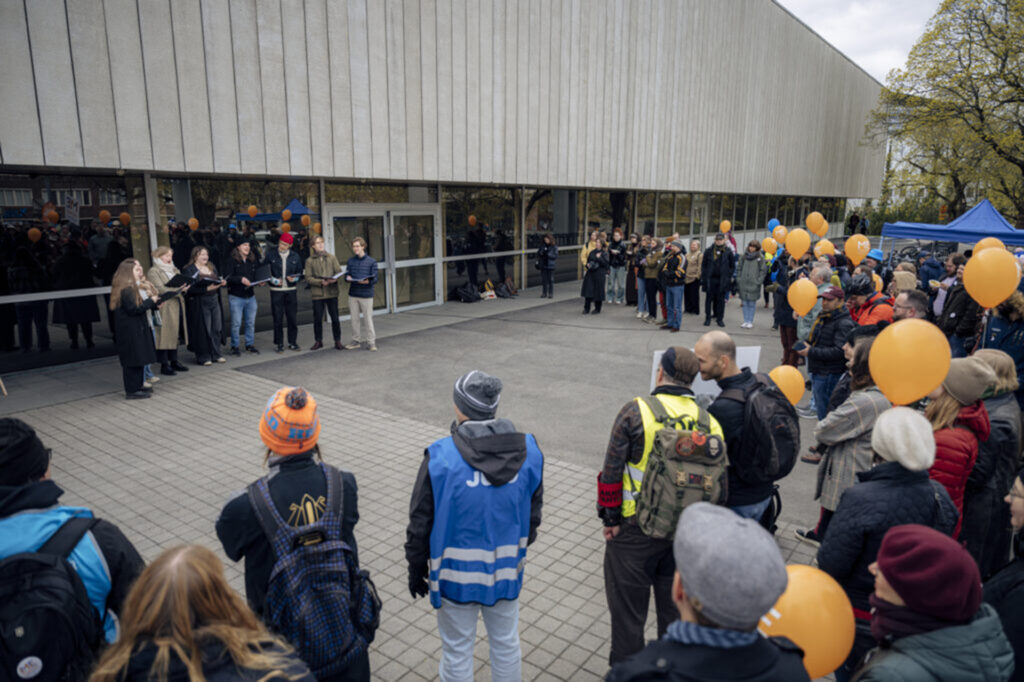Fighting for salary increases and working hour caps
At the time this issue went to print, negotiations at the universities were at a standstill. A strike had already taken place at Tampere University on May 7 (in the picture), and a strike warning had been issued for the University of Helsinki and the University of Turku. Below is a brief summary of how we ended up in this situation.

The university sector labour dispute in a nutshell
- Negotiation Organisation for Public Sector Professionals JUKO represents Akava members, including Loimu members, in the collective agreement negotiations in the university sector. Approximately 2,000 Loimu members are employed by the universities.
- JUKO aims for salary increases that improve purchasing power and solutions to the increased workload of staff in the university collective agreement negotiations.
- University staff have not been offered salary increases in line with the general level, which is 7.8 per cent in three years’ time.
- The Finnish Education Employers, representing university employers, is pushing for the removal of teaching hour caps.
- Teaching hour caps are an essential and important protective mechanism written into the collective agreement, which protects teaching and research staff from being overburdened at work. Teaching hour caps are important to all university sector unions representing JUKO’s teaching and research staff and their members.
- Negotiations have been ongoing intensively since early February, and the contract period ended at the end of March. Despite active negotiation efforts, no solutions were found at the negotiating table. In mid-April, the labour dispute was referred to the national conciliator.
- As a solution, JUKO has proposed, for example, local agreements and working group work based on research and expertise to explore how working time regulations could be developed from a university perspective.

